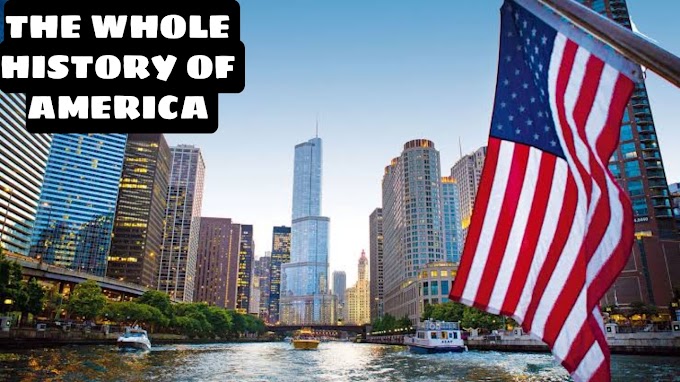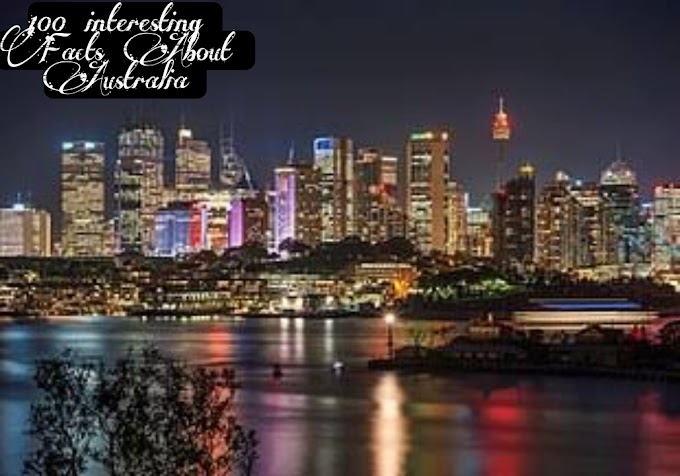THE WHOLE HISTORY OF Mali
Hello Guys:
Welcome to Countries Facts so Today in this Article I will show you the whole history of mali mali is a landlocked country in west africa the eighth largest in africa by land mass its capital is bamako mali's population of about 19 million is comprised of different ethnic groups the bambara are the largest ethnic group accounting for about 36.5 percent of the population all the groups include the soninkei and many more up to 90 percent of malians are muslims while 5 percent are christian the remaining 5 percent practice traditional african religions such as the dogon modern day mali was once part of three prominent empires in west africa ghana empire the mali empire and the sungai empire the ghana empire was the earliest of the three empires it spanned throughout west africa from the 8th century until 1078 when the al-muravids conquered it its actual name was wagadu empire ghana being the title of its ruler the ghana empire grew wealthy by engaging in trans-saharan trade in gold and salt in honor of this long-gone empire modern ghana adopted the name instead of its colonial name of gold coast when it gained independence in 1957 the mali empire was founded by sundiata keita between 1214 and 1255 the wealth of its rulers traveled well beyond africa especially at the reign of musa keita at a time the mali empire was the largest empire in west africa and had great influence on the culture of the region unarguably its most famous ruler was mansa musa who made a famous pilgrimage to mecca from 1324 to 1326 traveling with an entourage that was over 60 000 large and expended so much gold on the tree that gold became greatly devalued he is often described as the wealthiest individual of the middle aged era and one of the richest people in history modern mali owes its name to this medieval empire the name mali means the place where the king lives which is a connotation for strength the songhai empire dominated the western sahel during the 15th and 16th century at speak it ranked among the largest states in african history timbuktu was one of the important cities in this empire and it became a major center of learning with the establishment of the university of timbuktu in the 16th century during sony ali's rule the songhai exceeded the milan empire in power wealth and area taking up vast areas of the mali empire however the empire collapsed after sultan ahmad almanzor of morocco sent his army against it in the late 16th century in the late 19th century mali fell under the control of france and became part of what was known as french sudan in early 1959 french sudan formed a federation with senegal to become the mali federation the federation achieved independence on the 20th of june 1960 however senegal withdrew from the federation in august and the french sudan became the independent republic of mali on the 22nd of september 1960. this is the date that is celebrated as independence day in mali modi bocata was the first president of mali keita was in power for eight years before he was overthrown in a bloodless military coup led by musa trauri trauri held onto power for over two decades at that period the country faced economic hardship and political conflicts there were several students led protests calling for his resignation beginning in the late 1970s as well as multiple coup attempts on the 26th of march 1991 trauri was eventually removed in a coup by lieutenant colonel ahmadu to manitouri who immediately legalized opposition parties the coup is referred to as mali's march of revolution of 1991. when mali's first democratic presidential elections were held in 1992 alpha umar konari was elected president he was re-elected in 1997 in 2002 ahmadu to manitouri who led the coup that deposed musa trauri was elected as the next president he was also re-elected in 2007 however towards the end of his presidency on the 22nd of march 2012 he was forced into hiding after some angry soldiers carried out a coup he eventually resigned on the 8th of april and then went on exile in senegal ahmadu haya sanogo who led the coup assumed leadership of the new governing body which was the national committee for recovering democracy and restoring the state cnrdre then diaconda traure became interim president from april 2012 to september 2013 when a democratically elected president in the person of ibrahim bubaka keita assumed office mali has a good relationship with the west and america especially since 2002 they are also active in africa's regional organizations such as the african union and ecowas until its suspension over the 2012 kudita agriculture is mali's key industry and cotton is the nation's biggest crop exports mali also grows tobacco rice milled corn vegetables and tree crops agriculture livestock and gold make up about 80 percent of their exports after south africa and ghana mali is the third largest producer of gold in africa its gdp stood at 17.16 billion us dollars as at 2018. as far as sports in mali is concerned football is king in 2002 mali hosted the african cup of nations which further increased the sport's popularity in the country where they finished at fourth place basketball and traditional wrestling also enjoyed some good measure of popularity in mali malian musical tradition started with griots who were storytellers historians and prey singers the history of the people formed the lyrics of their songs today malian music has grown much more diverse with different genres some famous malian singers include tumani diabati basico koyati and blues guitarist alifar khaturi others are afro-pop singers like salif keita ahmadu a mariam and umu sangari some of the sites people love to see when they visit mali include the tomb of asuka a ruler of the songhai empire in the 16th century the national museum of mali in bamako the guinea falls which is sometimes called the niagara falls of mali and the city of timbuktu which has a rich historical background worldwide what have we missed out of this history let's know in the comment section will it be ridiculous to subscribe to our website if no please like this Article share and subscribe to our website we will see you later in the next Article Goodbye.

















